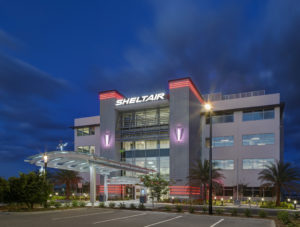Words by Kirstie Pickering
While business aviation was hit hard by the Covid-19 pandemic, it is bouncing back strongly. Some regions are experiencing exponential growth. Jetex for example reported that private jet traffic grew 349% in the first five months of 2021 at its VIP terminal at Dubai Al-Maktoum International Airport. Movements reached 5,073 this year compared to 1,129 during the same period in 2020, and 1,522 in 2019.
With the influx of customers comes a fresh challenge to provide extra levels of service that have come to be expected.
Managing and fulfilling expectations is a key part of customer service, but with a growing clientele within business aviation, FBOs and operators need to consider how those expectations may differ from person to person.
“The profile and expectations of private jet travelers have evolved over the last years – and even months – with a higher share of first-time flyers who had traveled in the premium cabins of commercial airlines discovering the private jet universe,” says Faisal Nizamuddin, quality manager at Jetex.
“While we continue catering to the older generation, we are seeing more and more young travelers. They expect many new elements, such as premium hospitality and enhanced entertainment and leisure facilities, to be part of their FBO experience.
“Millennials and the even younger Generation Z are contributing to an ever-growing share of the private jet travel market growth. Their way to interact with the Jetex brand is also more sensitive to fashion and lifestyle trends.”
The shift in demographic is also reaching staff within the industry, with the average age of flight crews continuing to decrease. What was once considered premium service offerings are now being seen as the bare minimum, requiring FBOs to invest in the newest launches in both digital and core facilities in order to excel.
“The generational shift brings with it a different set of expectations and purchasing behaviors,” says Michael Lerma, regional vice president of FBO operations at Sheltair. “The evolving customer demographic is assuredly influenced by the digital age and they value convenience and efficiency in their service interactions.
“We are focused on the customer experience and providing a seamless interaction with our guests while also looking for ways to streamline processes and improve operational efficiencies in the services we provide.”
Smart investments

With a widening demographic of business aviation customers, it can be tricky for FBOs to decide where to invest to impress. Considering the best return on investment is important and should be approached by looking at the long term and short term independently from each other.
“It is very important to invest in hiring and retaining industry-leading people equipped with the proper skillsets and ability to adapt to Sheltair’s family culture,” says Francisco Alonzo, vice president of real estate at Sheltair. “There must be a focus in building brand equity and loyalty through a company culture that fosters a positive experience for the employee.
“Investments are also important in training and program development for the benefit of our guests. Maintenance of all equipment and facilities is important to provide a prime experience and develop strict safety SOPs [standard operating procedures].”
“Sheltair adheres itself to the highest safety SOPs, which have allowed our network to become ISBAH and NATA Safety 1st certified,” adds David Buritica, director of sales and marketing at Sheltair. “Our customer service training and programs come from detailed studies of our guests’ needs, which have rewarded us with customer loyalty for nearly 50 years.
“As we continue to expand, we build our hangars and FBO facilities with the latest standards in technology, aesthetics and amenities.”
Spending significant funds on creating the right team is something Steven Lee, vice president of FBO operations at Clay Lacy Aviation also strongly believes in.
“With everything automated and at the tip of your fingers, customer expectations have evolved. They want quick communication and there is a much smaller margin for error,” he says.
“The best area to invest in is within your team to create long term, dedicated, hardworking employees, as well as in the facility itself to provide the best amenities for all crew and passengers.”
“FBOs should invest in the right team and ensure that every member has access to the right training and certification to be able to provide exceptional service to clients,” agrees Nizamuddin. “One of the underlying trends accentuated by the pandemic was the digitalization of our operations, which accelerated sharply in 2020. Over the past few years, we have invested heavily in the industry’s digital transformation and innovation at a global level.
“Our VIP terminal in Dubai was a perfect example of resilience and reliability during the most trying times of the pandemic. It never stopped, it continued serving customers and exceeding their expectations.
“In 2020, we opened two new flagship FBO destinations – Jetex Marrakech and Jetex Singapore – as well as expanding our presence at Jetex Abidjan and our facilities in Dubai.”
Common goals

FBOs often strive to differentiate themselves from competitors by offering exciting and unique services and facilities. Although this is important, it is crucial to perfect the basic, core elements of FBO operations first.
“Every FBO should work towards providing above and beyond customer service, be focused on exceeding the customer’s expectations and ensuring exemplary levels of safety,” says Todd Anderson, chief operating officer at Sheltair.
“It is crucial to make every aspect of your customer’s journey a memorable experience when they visit an FBO. Pay attention to every detail of their experience including ambiance, aesthetics, amenities, customer service, technology, cleanliness, maintenance and safety.”
Michael Fritz, head of ground operations at GlobeAir, believes that FBOs need to look at how their whole package comes together for the customer, putting themselves in their customers’ shoes.
“Understaffing, expensive rates, poor staff training and no lounge would deter me from using an FBO,” he says. “Every FBO should be working towards having a crew lounge, ideally separate from the passenger lounge, preferable rates for hotels, transport and catering, 24/7 availability, and a dedicated account manager.”
It’s undeniable that having the latest technology, modern facilities and aesthetics pleases customers, but Melissa Singer, CEO at Moxie Global Consulting, emphasizes how staffing is at the core of every success.
“Happy employees make happy customers,” says Singer. “Employees who are well trained and resourced are set up for success. Investing in employee service training and the right equipment for the jobs is the starting point for FBOs who want to excel at service.
“At Moxie, we take a holistic approach to service training at FBOs, meaning providing good service is everyone’s job, from line service to accounting personnel.
“A perfectly serviced aircraft experience can be negated if the invoicing is incorrect. Every detail and step in the customer service cycle is important.
“Engaged employees with pride in the workplace will naturally strive to deliver a customized and memorable experience for customers,” adds Singer. “When a company listens for opportunities to surprise and delight customers with personalized service, they win customers for life.
“For example, a savvy FBO staff keeps an array of greeting cards on hand for any and every opportunity to show a customer they care in both good times and ones that require sympathy and sensitivity.”
Differing customers

The personal touch of business aviation is a reason why customers shun commercial flights in favor of the industry. Remembering a returning customer’s name or favorite drink, taking the time to get to know a guest, and learning more about where they’re from and where they’re flying to should all be part of the private aviation experience.
It is important that this understanding is extended to the changing expectations of different customers, such as those from the US, Europe, and high net worth individuals. These groups create both new opportunities and fresh challenges for FBOs, with each set of customers requiring a different approach.
“European FBOs operate a little differently than those in the US, as they rely more heavily on amenities than FBOs in America,” says Buritica. “With that said, European customers are always wowed by the levels of service we provide as our company is very service-centric.
“Operations coming from Germany, Italy, Spain, UK, Switzerland and so on all have different expectations. We focus on delivering a courteous and speedy experience by understanding cultural and religious differences that allow us to provide exemplary professional service.”
Nizamuddin adds, “We promise a lot and deliver even more. We pay extremely close attention to detail and strive for perfection – from products to services, it is in this quest for excellence that Jetex differentiates itself. Such an approach allows us to win our customers’ trust and many years of loyalty.”
With business aviation bouncing back, the approach to adoption of new technology and investment in staffing and facilities could make or break FBOs around the world. It’s an exciting time for business aviation, and the opportunity for growth is there for the taking.





